21/10/2024
Sabancı University hosted one of the limited events held before the 44th International Strategic Management Conference taking place in Istanbul this year. The workshop entitled “Sustainability at the Crossroads: What is Next?” covered how the issue of sustainability is addressed in both the academic and business worlds.
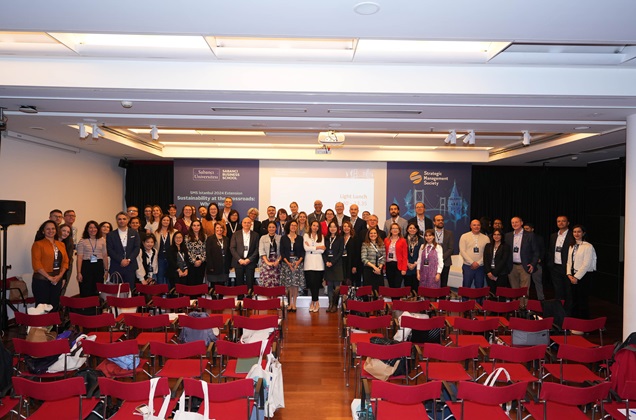
Sabancı University organized a sustainability workshop as part of the pre-events of the 44th International Strategic Management Conference organized by the Strategic Management Society, the world’s largest organization in the field of strategic management. The “Sustainability at the Crossroads: What is Next?” event held at the Sakıp Sabancı Museum on October 18 featured world-renowned academics and senior executives from leading companies in the fields of sustainability and management sciences as keynote speakers and panelists. In addition, participants were provided the opportunity to connect with working groups consisting of valuable figures from the academic and business worlds.
The first part of the workshop, hosted by Sabancı Business School, included the most current research topics in the field of sustainability and the results of these topics. In the continuation of the workshop, senior executives from companies that are leaders in sustainability provided information on practical developments. In a special session on emerging markets and Turkey, how sustainability can be transformed into a competitive advantage was discussed. The last session of the workshop focused on the challenges and benefits of implementing sustainability strategies. The leaders shared their experiences on how corporate culture and strategies have transformed.
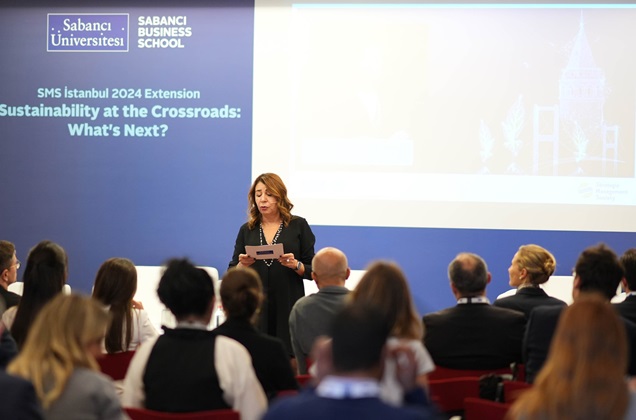
“We are at a significant crossroads”
Speaking at the opening of the workshop, Sabancı Business School Dean Prof. Dr. Ayşegül Toker expressed the following views:
“Our vision at Sabancı Business School is to create a world-class academic environment that integrates innovative research and effective teaching. We are also aware of the importance of responding to the needs of the business world and society in creating social impact. Our school focuses on four main areas to achieve these goals: digital transformation, business analytics, entrepreneurship, and sustainability. Sustainability, which stands out as a critical focus among these, is more important than ever due to the increasing challenges. We witness the impacts of these challenges on our planet and societies more and more each day. In short, it has become clear that adopting sustainability practices is no longer just an option, but a fundamental necessity to ensure a livable future.
On the other hand, as the name of our event emphasizes, sustainability stands at a very important crossroads today, marked by fault lines between developed and developing economies, academia, and industry. Bringing together distinguished academics and business leaders, today’s workshop serves this purpose by providing an opportunity to learn first-hand information about the latest research and practical developments in the field of sustainability. As global challenges such as climate change and resource depletion continue, sustainability stands out as a critical competitive advantage in emerging markets. Therefore, we believe that creating a dialogue environment between business executives and academics is a valuable opportunity, and we believe that this collaboration will lead us to define what is next in terms of sustainability and to take important steps by reviewing our approaches.”
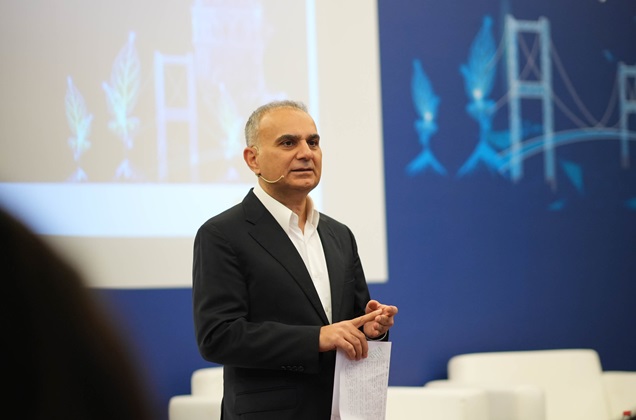
Stating that the intersection of technology, sustainability, and business is extremely valuable, Sabancı Holding Mobility Solutions Group President and Sabancı University Nanotechnology Research and Application Center Board Chair Cevdet Alemdar drew attention to the urgency of addressing environmental and social challenges through technological developments, especially in energy and resource management. Calling for a transition to sustainable practices in business models and investment strategies, Alemdar touched on the possible consequences of remaining idle and said, “Grasping this understanding of new business models and technologies is critical for the future. Those who cannot do this will either be customers or low-cost business partners of those who can.” Alemdar also emphasized the importance of cooperation between industry, government, and the public to achieve these goals.
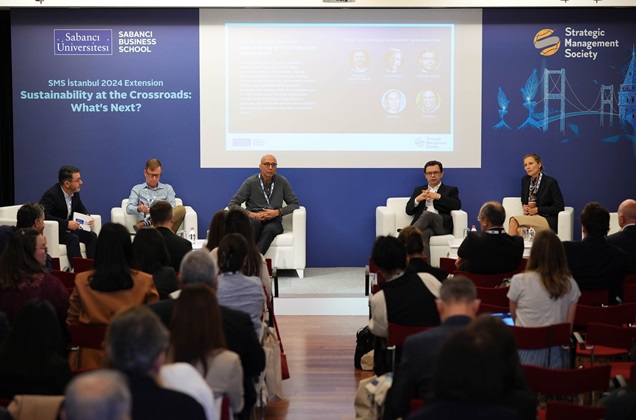
Moderating the session entitled “Strategy and Sustainability: Academic Perspective”, Assoc. Prof. Dr. Remzi Gözübüyük of Sabancı Business School stated that the importance of sustainability strategies is increasing and said, “The sustainability issue is one of the 6 major topics covered on the SMS website. The fact that more than 20 percent of the sessions to be held during the conference will be devoted to this sustainability and strategy issue also reveals this importance. Today, we are addressing the interaction between these two concepts with our panelists, who are pioneers who have dedicated their time to research, education, and activities in this field.”
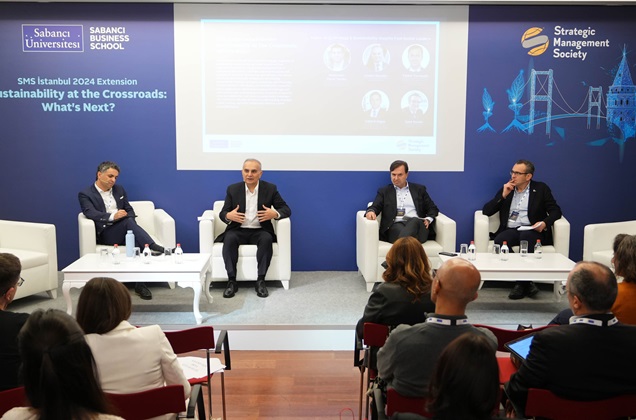
In the session entitled “Strategy and Sustainability: Views from Industry Leaders”, the subject of sustainability was discussed by representatives of leading institutions in the business world. The session, which began with the call of Prof. Dr. Murat Tarakçı from Erasmus University Rotterdam School of Management, who was the moderator, to the academics and business people participating in the panel, saying “Let’s focus on how we can create a better future together”, continued on the axes of sustainability and ethics. Drawing attention to the importance of environmental awareness, the panelists emphasized the necessity of integrating sustainability into business strategies for a better future.
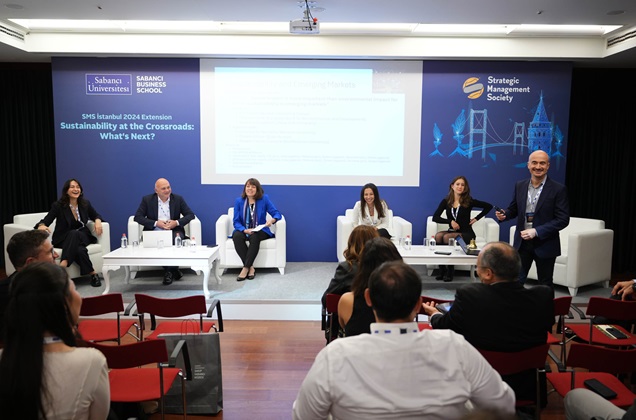
The panel entitled “Sustainability in Emerging Markets” organized within the scope of the event was moderated by Prof. Alvaro Cuervo-Cazurra from Northeastern University. The session centered on the discussion “Is social impact or environmental impact more important in developing countries?” put forward by the moderator, and the panelists shared their views. The panel, which continued interactively with the participation of the audience in the Q&A section, was followed by a vote and it was seen that both views were shared equally.
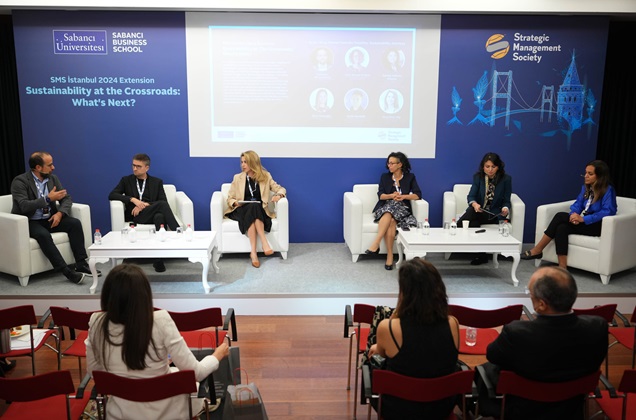
The last session entitled “Stories from the Field: Sustainability Journeys” organized within the scope of the workshop was moderated by Assoc. Prof. Dr. Ata Can Bertay of Sabancı Business School, who is also the Director of CGFT - Corporate Governance Forum. The session, where ESG (Environmental, Social and Governance) factors and various aspects of sustainability were discussed, addressed the reasons for the recent shift away from ESG in some markets and its possible effects on global companies and emerging markets, the importance of data collection and measurement, the role of businesses in promoting sustainability, as well as the impact of legal regulations and policies and the importance of stakeholder engagement.
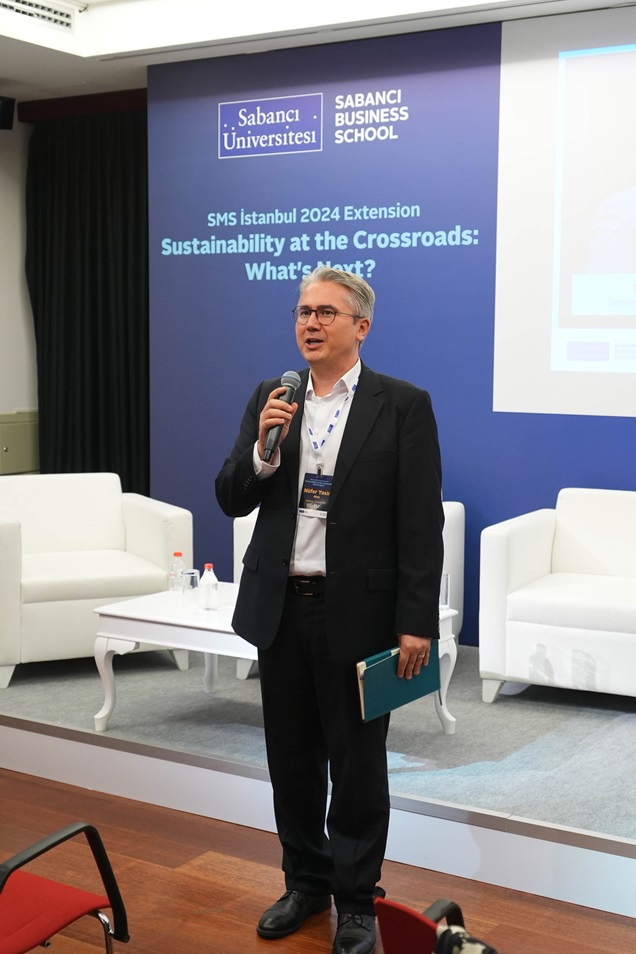
The closing speech of the event was delivered by Assoc. Prof. Dr. Nüfer Yasin Ateş from Sabancı Busines School, and the Hüsnü Paçacıoğlu Chair, who said: “Our meeting today clearly demonstrates the benefits and importance of all stakeholders coming together with the same determination and more frequently in order to overcome the challenges in the field of sustainability. On behalf of Sabancı University and Sabancı Business School, I would like to thank all the audience members, panelists and undoubtedly everyone who contributed to this organization.”
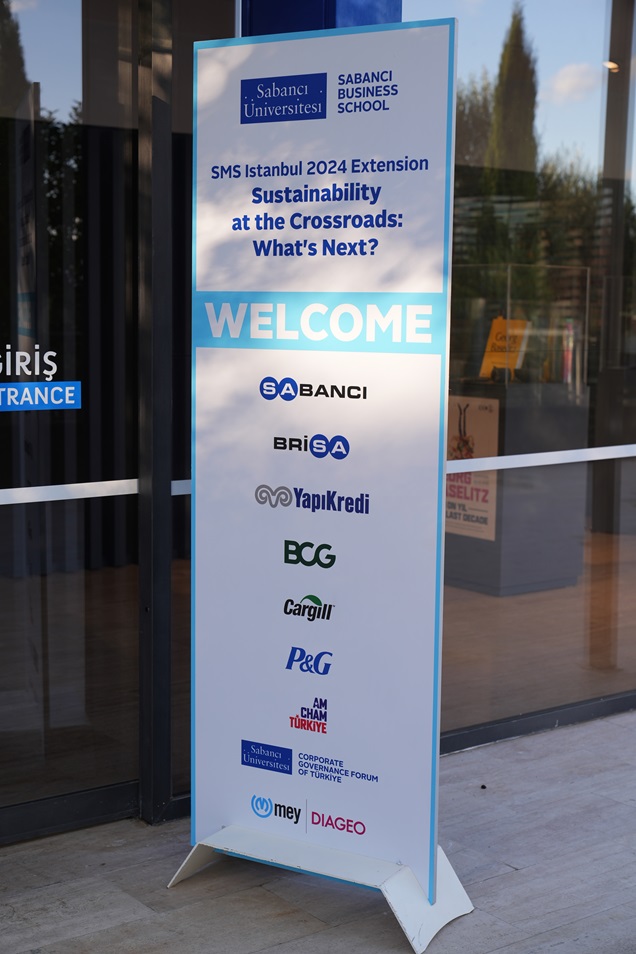
More than 3,000 academics and professional members from 80 countries
The Strategic Management Community is represented by more than 3,000 academics and professional members from more than 80 countries and carries out studies to develop and disseminate the strategic management approach.
Sabancı Business School continues to contribute to management practices and knowledge both in Turkey and around the world with its research, programs and graduates.




